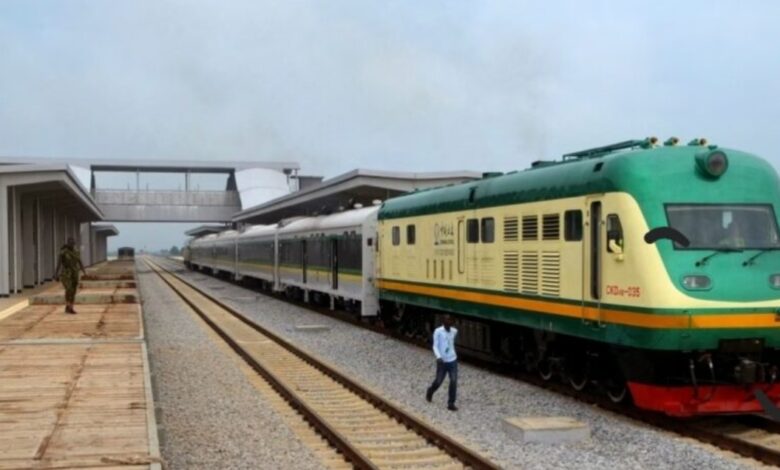Nigeria Neglects Vulnerable, Poor #AK9Train Captives
118 days later, Nigeria neglects and frustrates vulnerable captives who were abducted on board a government-owned train near Kaduna.

Nigerians woke up on Sunday, July 24, to a terrifying video showing armed fighters aggressively striking some of the remaining captives abducted last March during an infamous train attack. The public train had been moving between the capital city of Abuja and Kaduna in the restive Northwest.
The victims cry out in pain as the abductors beat the male captives. The beating only stops after one of the abductors is heard saying “yayi,” meaning ‘it’s enough’ in the Hausa language widely spoken across northern Nigeria. The female captives were also shown wailing even though they were separated from the men.
Of the initial 63 abducted, 43 vulnerable victims are believed to still be in captivity. The March 28 attack had involved the use of explosives and a barrage of gunfire targeting the train, which took off from Idu station in the federal capital and headed towards the Rigasa train station in Kaduna.
Forgotten and neglected, the remaining captives, including five children, face a renewed threat as their abductors lash out at the government for failing to come through and secure their release. The victims also expressed their disappointment with the authorities and called for international efforts, saying, “Our relatives attempted to save us, but the government prevented them.”
The negotiation process appears to have run into a brick wall as certain quarters in the government are blocking further ransom payment. Additionally, some families of the remaining captives do not have the financial resources to meet the amount reportedly needed for their loved ones to regain freedom.
In Nigeria, the poor are frequently left behind with little care or support from governing and political elites, despite bearing the brunt of violence and the kidnapping for ransom epidemic across the country.
The situation also highlights structural issues and a failure to build the capacity of security institutions to manage these types of violent events, despite several occurrences after the infamous Chibok school girls’ abduction in 2014.
How much has the country learned? The answer is visible in the gaps surrounding the response to similar incidents of mass abduction and the management of the Abuja-Kaduna train crisis, and why only 20 persons have been released so far.
Days after the abduction, the Managing Director of the country’s Bank of Agriculture, Alwan Ali Hassan, was released in a deal that reportedly involved an exchange of ₦100 million (about $236,000). However, in a video shared online after his release, the abductors claimed the action was taken due to his age and in the spirit of Ramadan, the Muslim fasting season.
Hassan echoed a similar line, stating that he was freed due to his age and that he would be leaving a lot of people behind. He added that he hoped the government would meet with the group and facilitate their release.
Since then, the group has released proof of life videos, including one in May that showed a Pakistani national. The group would later free a pregnant captive. The subsequent release of June 11 involved 11 people.
The latest release of seven individuals, including the Pakistani national, was said to have taken place on July 10 following an exchange of ₦100 million for the six Nigerians and ₦200 million for the Pakistani national. The payment was reportedly made in Dollars and Naira.
Nigeria needs to manage the ongoing situation better to secure the release of the remaining captives. The country must also reform and build the requisite capacity for hostage crisis management and an efficient system to curb the kidnapping epidemic.
During a demonstration two months ago, families of the captives said life had not been the same since the train attack and that they were still waiting for the government to step up rescue efforts.
“Mr President, we are law-abiding citizens. You promised to protect us. You promised to give us good security and everything. But we are very sorry; the government has failed us… because I don’t even trust the government anymore,” said one of the relatives, Fatima Ciroma.
She mentioned that many of them broke down after seeing the proof of life video released days before the protest.
“It appears the government is absolutely not concerned in bringing our loved ones out,” another relative, Abdulaziz Atta, said. “They are not concerned because they are busy with politics. They are busy fighting for posts. All the political parties, that is their interest now. They are not interested that we have several people in captivity.”
Support Our Journalism
There are millions of ordinary people affected by conflict in Africa whose stories are missing in the mainstream media. HumAngle is determined to tell those challenging and under-reported stories, hoping that the people impacted by these conflicts will find the safety and security they deserve.
To ensure that we continue to provide public service coverage, we have a small favour to ask you. We want you to be part of our journalistic endeavour by contributing a token to us.
Your donation will further promote a robust, free, and independent media.
Donate HereStay Closer To The Stories That Matter




